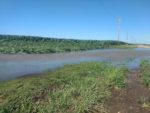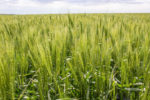Carbon Loss Proportional to Tillage Intensity
Soil scientist Don Reicosky says the more soil you disturb in tillage, the more CO2 is released. In addition, he says tillage is detrimental to fungi-to-bacteria ratios that are vital to carbon and nitrogen storage.
Read More








